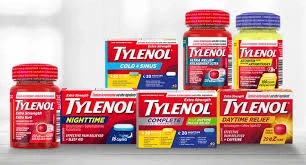Texas Sues Tylenol Maker in Wake of Trump’s Unfounded Autism Warnings

The legal and scientific battle over one of America’s most common pain relievers is intensifying, leaving millions of pregnant women and parents in a state of anxious uncertainty.
In an unprecedented legal move, the state of Texas has sued the makers of Tylenol, thrusting the over-the-counter medication into a political and scientific firestorm. The lawsuit, filed by Texas Attorney General Ken Paxton, targets Johnson & Johnson and its spinoff company, Kenvue, alleging they deceptively marketed Tylenol as safe for pregnant women while hiding alleged risks of autism and ADHD in children.

This legal action escalates a national controversy, coming just weeks after President Donald Trump directly advised pregnant women at a White House news conference, “Don’t take Tylenol.” The case pits long-standing scientific consensus against accelerating political rhetoric, creating a modern public health dilemma around a medicine found in nearly every American household.
The Texas Lawsuit : Allegations of Deception and Fraud
The Texas lawsuit represents a significant escalation from previous individual lawsuits. Attorney General Ken Paxton’s complaint accuses the corporations of violating the Texas Deceptive Trade Practices Act by knowingly downplaying potential risks associated with acetaminophen, the active ingredient in Tylenol, during pregnancy .
The state is demanding the companies destroy all marketing materials that present Tylenol as safe for pregnancy and pay substantial civil penalties . In a bold strategic allegation, the lawsuit also claims that Johnson & Johnson’s 2023 spinoff of its consumer health division into Kenvue was a “fraudulent transfer” intended to shield valuable assets from mounting Tylenol liability . This suggests prosecutors view the potential financial exposure for the companies as considerable.
A spokesperson for Kenvue has stated the company “strongly disagrees with any suggestion” that acetaminophen causes autism and is “deeply concerned with the health risk this poses for expecting mothers and parents” . Both companies have vowed to vigorously defend against the lawsuit.
A Political Catalyst and Public Reaction
The Texas lawsuit did not emerge in a vacuum. It follows a forceful campaign by the Trump administration to change official health guidance regarding Tylenol. The administration has signaled it will seek to update the drug’s label and has warned doctors against prescribing it to pregnant women for routine fevers .
This direct intervention has created a public relations crisis for Kenvue, the two-year-old company that now owns Tylenol. The company’s stock plummeted 17% after The Wall Street Journal first reported the administration’s plans .

In a behind-the-scenes effort to forestall the announcement, Kenvue’s interim CEO, Kirk Perry, met with Health Secretary Robert F. Kennedy Jr. earlier this month to argue that science does not support a link between Tylenol and autism . The company has also added new language to its website in an attempt to reassure consumers, stating they should not be “concerned about acetaminophen and autism” .
The Scientific Divide: Unproven Claims Versus Established Safety

At the heart of the controversy is a fundamental disagreement over the scientific evidence.
- The Unproven Link: Major medical organizations, including the American College of Obstetricians and Gynecologists, maintain that assertions of acetaminophen causing autism are not supported by conclusive evidence . They caution that discarding a primary treatment for pain and fever during pregnancy could itself be harmful, as the conditions acetaminophen treats can pose risks to both the pregnant person and the fetus if left untreated.
- Conflicting Research: Some studies have observed statistical correlations between acetaminophen use and neurodevelopmental issues. However, other large studies have found no causal link. For instance, a major Swedish study analyzing millions of children found that an observed link disappeared when comparing siblings, suggesting that genetic or environmental factors, not the drug, could explain the association .
A federal judge previously rejected lawsuits from families making similar claims, ruling that the science was not reliable enough to prove causation and excluding key expert witnesses . Those families are currently appealing the decision.
Tylenol’s Troubled History: From Tampering to Today
This is not the first time Tylenol has faced a massive public crisis. In 1982, the brand became the textbook example of corporate crisis management after a malicious product-tampering incident in Chicago. Seven people died after taking cyanide-laced Extra-Strength Tylenol capsules, triggering a nationwide panic .
Johnson & Johnson’s response is still studied in business schools today. The company immediately alerted consumers nationwide, halted all production and advertising, and ordered a unprecedented national withdrawal of every Tylenol capsule—an estimated 31 million bottles—from store shelves . The company regained public trust by swiftly introducing tamper-resistant packaging, making Tylenol the first product in the industry to use such safety seals .
The current crisis presents a different challenge. Unlike the 1982 tampering, which was an external criminal act, the current allegations strike at the core of the product’s safety and marketing.
Legal Battles and Lasting Impact
The lawsuit places a national spotlight on the complex interplay between emerging science, political influence, and public health. For Kenvue, the stakes are immense. Tylenol alone generates roughly $1 billion in annual sales, and any lasting damage to its reputation could significantly impact the company’s financial health .
For consumers, particularly pregnant women and parents, the situation creates a confusing dilemma. They are now caught between official political warnings, aggressive state litigation, and a medical community that largely maintains that when used as directed, acetaminophen remains the safest over-the-counter pain and fever reliever available during pregnancy.
As the Texas lawsuit moves through the courts and the federal appeal on the dismissed lawsuits continues, the debate over Tylenol is sure to intensify. The outcome will not only determine the fate of countless future lawsuits but could also reshape how millions of Americans manage pain and fever during one of the most vulnerable periods of life.
FAQs…
Is there definitive scientific proof that Tylenol causes autism?
No, the link is not scientifically proven. Major medical organizations, including the American College of Obstetricians and Gynecologists, state that the claims are not supported by conclusive evidence. While some studies have observed a statistical correlation, other large studies—including one from Sweden that analyzed millions of children—found no causal link, suggesting other genetic or environmental factors could be at play.
What should pregnant women do now? Should they stop taking Tylenol?
Pregnant women should not make medication changes without consulting their healthcare provider. Medical experts caution that the conditions Tylenol treats, such as fever and significant pain, can themselves be harmful to both the pregnant person and the fetus if left untreated. They advise that acetaminophen remains the safest over-the-counter option for pain and fever relief during pregnancy when used as directed.
How are President Trump and his administration involved?
The Texas lawsuit follows public warnings from the Trump administration. President Trump directly advised pregnant women not to take Tylenol, and his Health Secretary, Robert F. Kennedy Jr., has pushed for updated warning labels. This political pressure has accelerated the public controversy and provided a catalyst for the state’s legal action.
Have other lawsuits like this been successful?
So far, similar lawsuits have faced significant legal hurdles. A federal judge overseeing thousands of consolidated lawsuits from families made a key decision in late 2023, ruling that the scientific evidence presented was not reliable enough to prove causation and excluding the testimony of key expert witnesses for the plaintiffs. That decision is currently under appeal, making the Texas lawsuit a new and different legal front in this battle.








